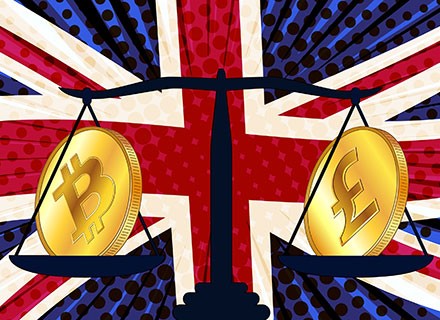The Bank of England and the Treasury said that people might be able to use a new digital pound, called ‘Britcoin’, instead of cash by the end of the current decade.
With a four-month public consultation process on a “Britcoin” beginning in February 2023, the Rishi Sunak government is stepping up its reaction to the rise of privately issued cryptocurrencies and stablecoins.
The Bank and the Treasury will attempt to reassure the public that a state-backed digital currency would be as secure as cash in the wake of the volatility of cryptocurrencies and the failure of the FTX.
Before making a final choice by the middle of the decade, officials will examine the technical challenges associated with developing a central bank digital currency.
As per British media, the consultation between the exchequer department and the Bank of England is due to take around four months. The design phase of ‘Britcoin’ is then likely to continue until at least 2025, from which time a final decision could be made. The launch of digital currency may reportedly take place during the latter half of the current decade.
Jeremy Hunt, the Chancellor of the Exchequer, and Andrew Bailey, the Governor of the Bank of England, claim that although support for the proposal is growing, the government may still decide against moving forward. In the future, a digital pound will be required, according to the consultation paper.
The Bank and the Treasury estimate that, assuming approval; cash may be kept in digital wallets made available to consumers by the private sector through cell phones or smartcards as early as the end of the 2020s.
According to Andrew Bailey, “The need for a digital pound in the future is expanding as our surroundings, and payment methods become increasingly digital. A digital pound would offer a new payment method, benefit businesses, uphold the value of money, and better safeguard monetary stability.”
“However, our technical efforts will need to evaluate a variety of ramifications carefully. This discussion and the additional work the Bank will perform immediately will serve as the basis for a significant country-wide decision regarding how we spend money,” he remarked further.
If adopted, the digital pound could be used for in-person and online transactions and issued by the Bank of England. It would be printed in denominations of pounds sterling, just like the current system of notes, and be interchangeable with cash and bank savings. However, the digitally stored pounds would not be subject to interest payments.
According to the Bank and the Treasury, a digital pound would be held to strict privacy and data protection requirements. The ability to identify and authenticate users is required to prevent financial crime. Thus the digital pound would not be anonymous, like present digital payments and bank accounts, they claimed. The widespread adoption of the digital pound depends on this trust and faith in money.
Although the UK’s plans are further along, the US Federal Reserve and the European Central Bank, are considering developing their official digital currency.
As cash usage continues to decline, the Bank and the Treasury think the introduction of private digital currencies threatens the monetary system’s stability and that a trustworthy and effective official alternative will be required. A variety of cryptocurrencies have been developed as a result of technological advancements. Still, according to the Bank and the Treasury, the difference with a digital pound is that the government would back it.
“While cash is here to stay, a digital pound issued and backed by the Bank of England could be a new, dependable, and simple method of payment. Although we always make sure to safeguard financial stability, we want to first investigate what is possible,” Jeremy Hunt said.
British consumers would be limited to holding a maximum of 20,000 pounds (USD 24,000) each if the Bank of England goes ahead with a digital version of the British currency, BoE Deputy Governor Jon Cunliffe said.
“We propose a limit of between 10,000 pounds and 20,000 pounds per individual as the appropriate balance between managing risks and supporting wide usability of the digital pound,” Jon Cunliffe informed the members of UK Finance, a banking industry body.
“A limit of 10,000 pounds would mean that three-quarters of people could receive their pay in digital pounds as well as holding pre-existing balances in the same account, while a 20,000 pound limit would allow almost everyone to use digital pounds for day-to-day transactions,” he added.

